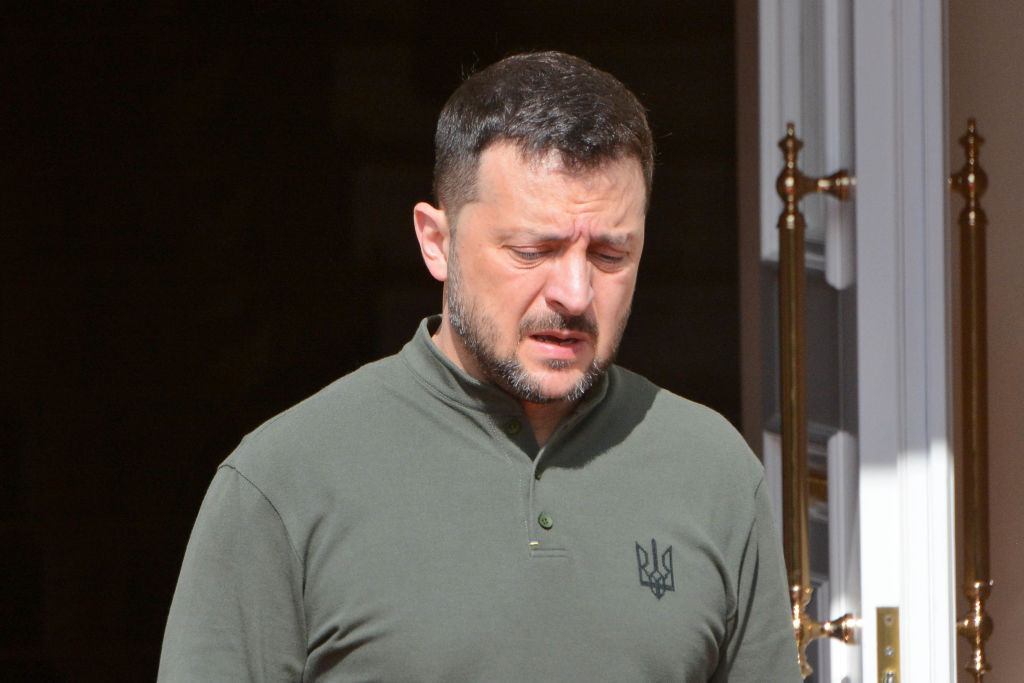When Russia invaded Ukraine in February 2022, it did so as a far larger, richer and more powerful nation than its victim, with greater resources of manpower, industrial capacity and raw materials than the Kyiv government could ever hope to wield. For all the shifting tides of the war so far, this essential imbalance has not changed. Now it’s finally bearing fruit for Moscow.
Ukraine’s Kursk incursion has been characterised as a strategic misstep, denuding the defensive lines of the vital manpower necessary to blunt Russia’s advance along the eastern front. But it has not altered the essential dynamics of the war, only accelerated existing trends.
The Kursk operation, of which the United States was not informed in advance, has been framed as an attempt to enter the direct peace talks with Russia mooted for this autumn with a strong hand to play. As the analysts Rob Lee and Michael Kofman note, “The timing and organization of the offensive suggests that Ukraine’s leaders judged they needed to act. One possible reason is the looming US election, which threatens to push Kyiv into negotiations with Moscow while in a position of weakness.” Yet as they observe, “the offensive puts into sharp relief the apparent lack of an agreed strategy between Ukraine and its Western partners […] This turn of events should lead to a revision of the current strategy in this war, assuming one exists.” As it stands, “Kyiv’s present theory of success remains unclear.”
Yet the same is true for the country’s Western backers. Following the failure of the 2023 counteroffensive — which had been planned to break through the Russian lines in southern Ukraine, enabling Kyiv to enter peace negotiations from a position of strength — there has been no credible plan for a Ukrainian victory. Instead there has been only a series of stopgap and increasingly contested arms deliveries geared towards staving off defeat. The Biden administration, legally obliged to present Congress with a detailed, realistic strategic pathway towards the war’s victorious conclusion by June this year, still has not done so. Simply put, this is because such a plan does not exist.
The strategic vision for 2024 was to blunt Russia’s offensive power, forcing Moscow into peace talks through a realisation that Kyiv’s ability to defend its territory imposed higher costs in manpower and materiel than Russia could long sustain. Bold plans for another major counteroffensive in 2025, once Russia’s offensive power had been exhausted, had been mooted by analysts but never seemed particularly convincing. Yet the fresh units on which this strategy relied are instead being sent piecemeal into the meat-grinder of the eastern front.
While running out of motivated recruits, Ukraine has been forced to use its needed reserves and most hardened and effective brigades to plug gaps in the defensive line, wearing away their combat effectiveness. The Russian army is making daily gains along the eastern front, bringing its greater material advantages to bear. With great effort, and at great cost, the Ukrainian army is defending its positions, yet remains outgunned and outnumbered by Russia’s superior resources. Rather than building up the necessary strength for a new offensive push next year, Ukraine is struggling, at its very limit, to prevent a Russian operational breakthrough beyond its decade-old fortified defensive line.
The broader trends for Kyiv seem almost wholly negative. As Lee and Kofman observe: “Since 2023, Washington has been out of ideas for how to successfully end the war on terms favorable to Ukraine.” The celebrated historian of Russia, Vladislav Zubok, frames their argument more bluntly: “In its current form and shape the war in Ukraine is adrift and unwinnable.” Distracted by November’s presidential election, the Ukraine war has faded into the background for Washington: whoever wins the contest will likely be forced to grapple with an unpalatable outcome. Plan A is not working; unfortunately for Ukraine, there is so far no evidence of a Plan B.











Join the discussion
Join like minded readers that support our journalism by becoming a paid subscriber
To join the discussion in the comments, become a paid subscriber.
Join like minded readers that support our journalism, read unlimited articles and enjoy other subscriber-only benefits.
Subscribe